The Independent's journalism is supported by our readers. When you purchase through links on our site, we may earn commission.
‘No longer an exercise in blissful ignorance’: Eco-friendly homeware buys
So many design companies have risen to the eco-friendly challenge. Here are Anya Cooklin-Lofting’s favourites
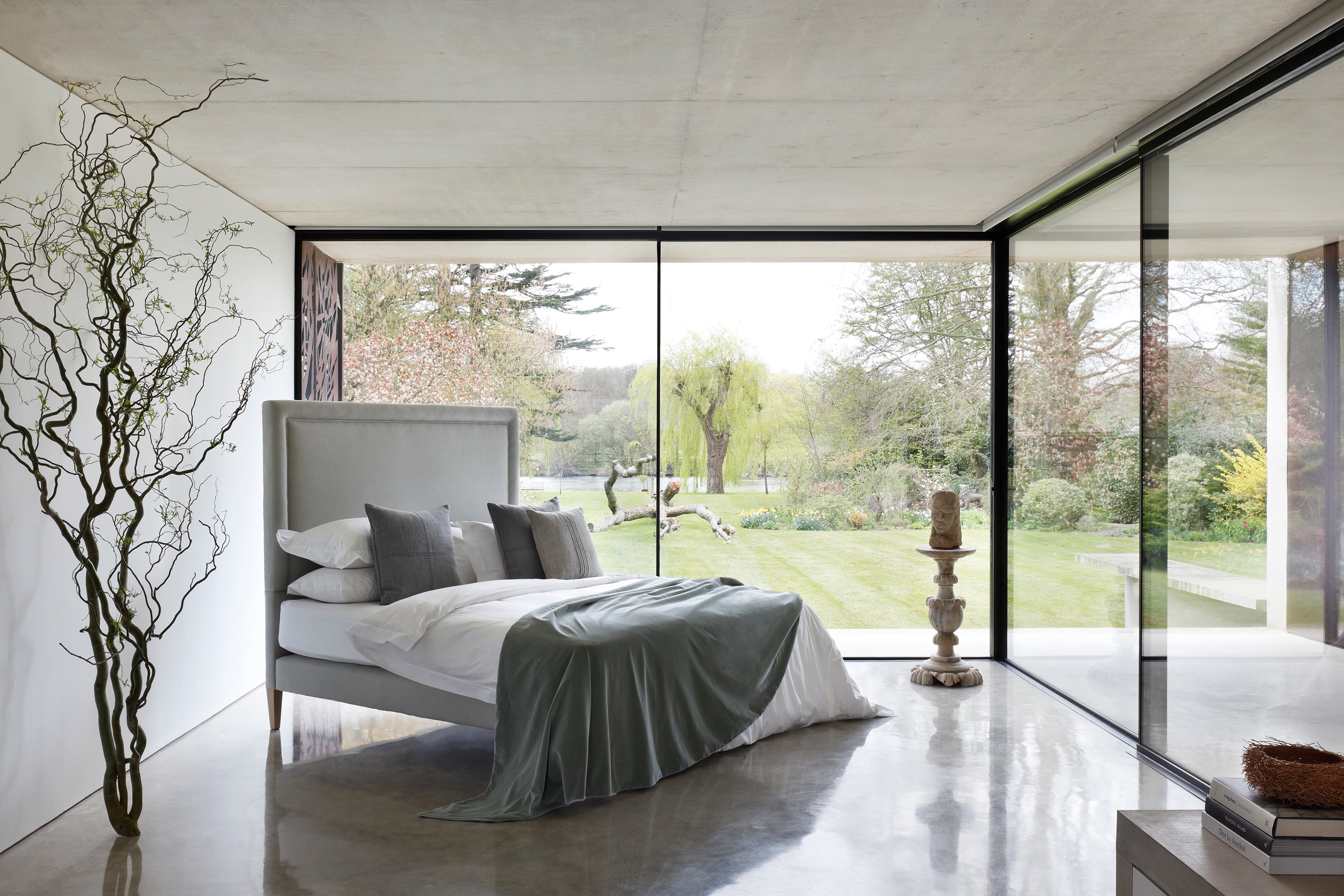
Innovative uses of natural materials are characterising the design industry in 2022. Shopping for homeware is no longer an exercise in blissful ignorance when it comes to our favourite brands’ eco-credentials: we have arrived at ethical enlightenment, tapping drop-down boxes for product information and reading about companies’ commitments to sustainability and staff welfare.
So many design companies have risen to the challenge, using eco-friendly, cruelty-free materials in new and exciting ways. From some of the very best-known names in design to new brands to watch, the interiors community is taking a step in the right direction to promote kindness to animals, environmental sustainability and cooperative labour initiatives.
Working with sustainable materials and helping to generate income sources for international development are particularly effective ways to produce ethical homeware. Interiors companies like Maison Maison are using design-led, stylish and high-quality homeware. Its Woven Collection of lampshades comprises scalloped shades in rattan, the quickest-developing tropical wood that renews in around five years, seagrass and water hyacinth, starting at £40 for a Petite Bell. The collection is handmade by Vietnamese women artisans as part of a cooperative labour initiative.
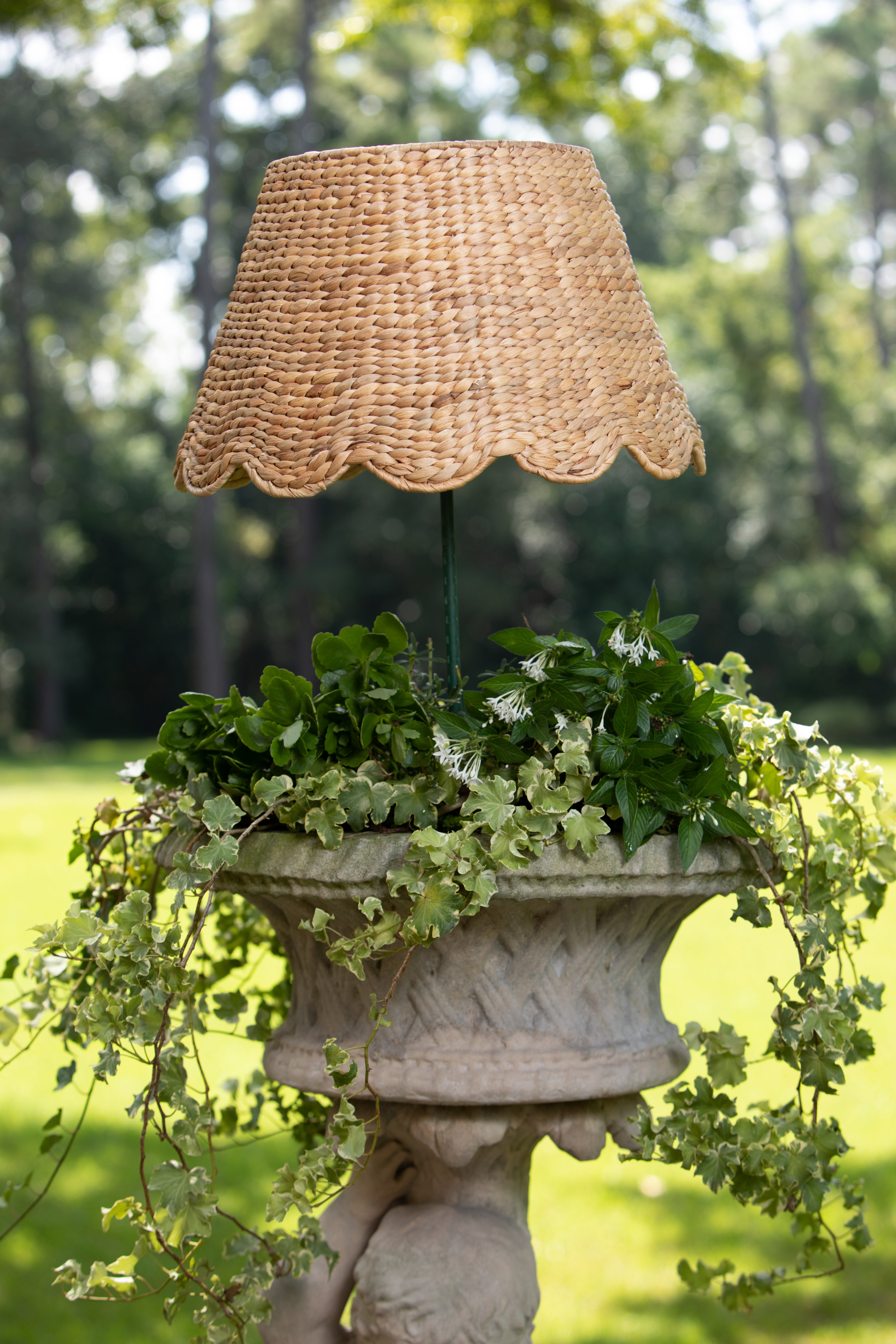
At the more affordable end of the market, Oxfam’s Sourced by Oxfam collection is an ethical range of home accessories made from sustainable materials by artisans across the globe. All products have been selected by a team of Oxfam’s buyers who search globally for suppliers prioritising people over profit, small-scale production and responsibly sourced materials. The range includes useful seagrass baskets, rugs and Kantha throws made from recycled saris. 100 per cent of the Sourced by Oxfam products go towards the charity’s projects to help people overcome poverty.
Although the term ‘trend’ does little to capture the wider movement in design towards eco-friendly materials, the softness and tactility they lend to the home are certainly trending. Linen, one of the most environmentally sustainable fibres, brings a light, sophisticated finish to any room. The iconic French textile company, La Manufacture Cogolin, has launched a linen collection, Bord de mer, its first new fabric collection in 40 years. The range is fresh and textural, both rustic and refined.
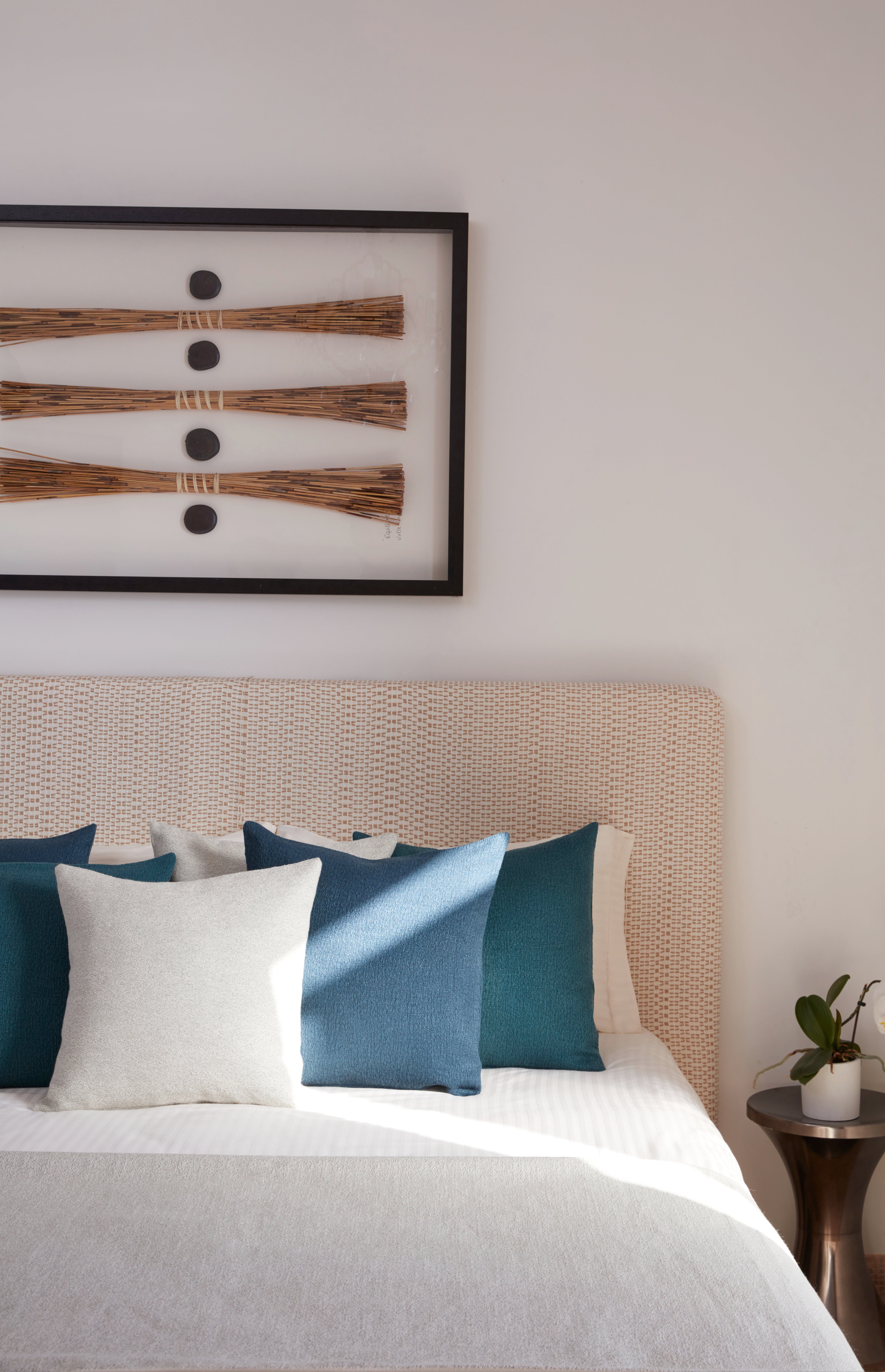
Collection Noir, a new homewares company, has also cottoned onto the linen trend with the launch of its 100 per cent pure Irish linen cushions, made in the UK. Collection Noir works alongside the craftspeople behind its products, prioritising the use of sustainable materials. Samantha Wilson, the company’s founder, is looking to commit to percentage donations for wildlife projects as the company grows.
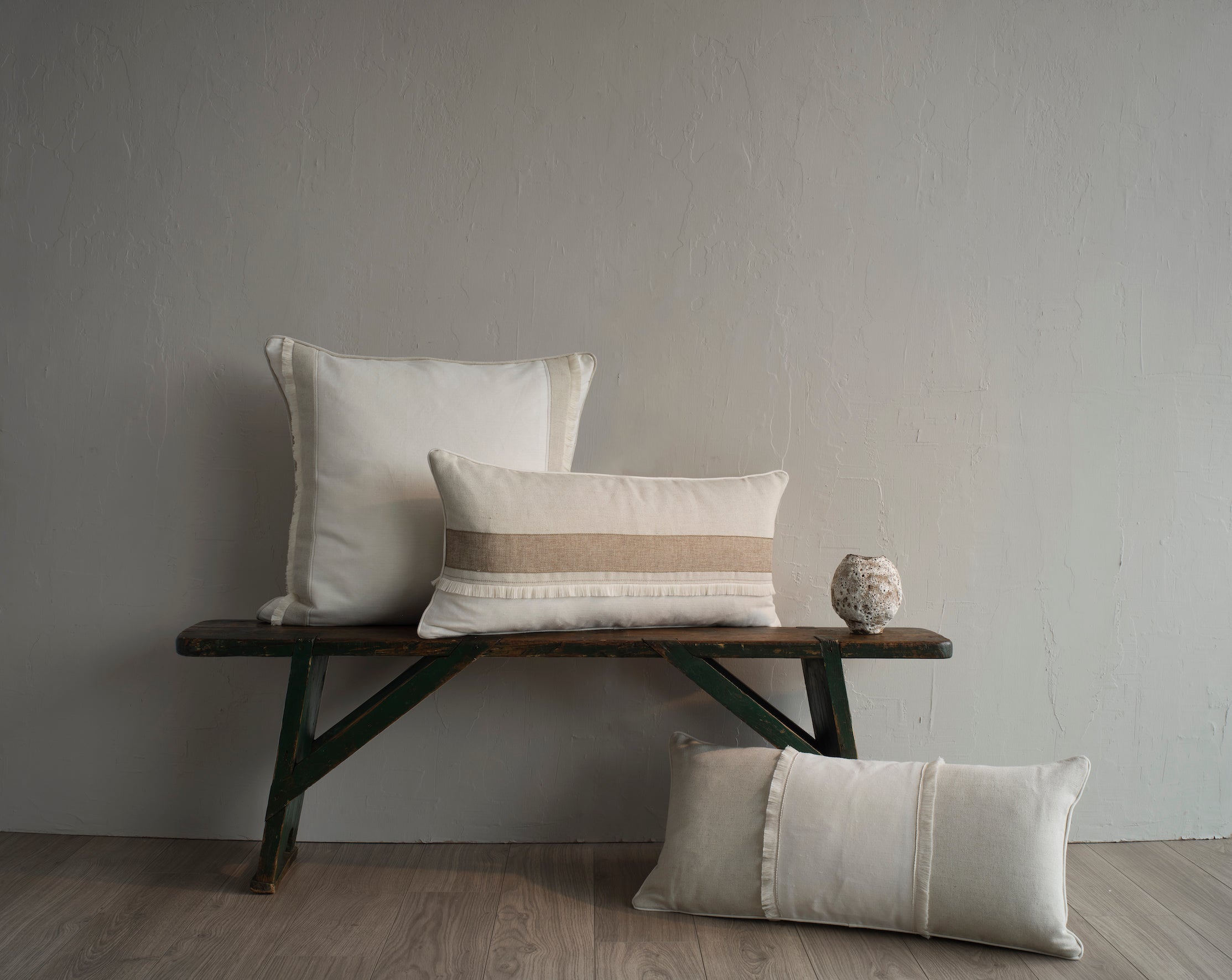
When it comes to large-scale furniture and mattresses, out-of-the-box thinking needs to meet the market’s eco-expectations. In big news, Savoir Beds, best known for its Savoy Bed created for The Savoy Hotel in 1905, launched its first vegan bed made. Lambswool and cashmere are found on its more traditional list of materials, but the new model, The Reformer No.4 V, is certified by The Vegan Society for its agave, bamboo, organic flax and cotton composition. The beds are handcrafted to order in Wales.
Companies are also working to redirect landfill and ocean-bound plastic. Millbrook Beds launched a collection of sustainable mattresses with a NemoFlex™ recycled-plastic core. These are made in the New Forest and designed with responsible end-of-life recycling in mind, with an in-house recycling programme ensuring a circular economy.
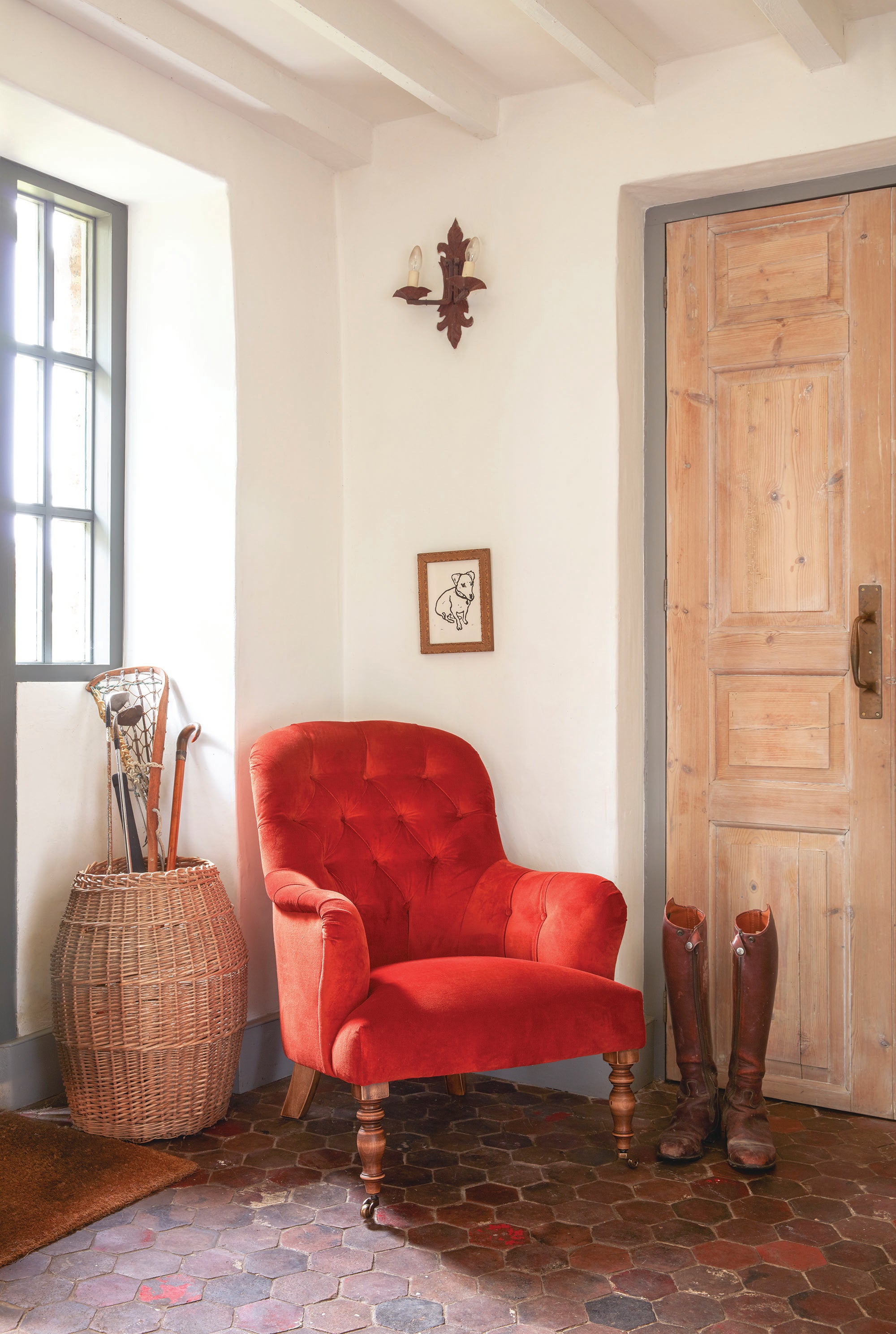
Furniture company Sofas & Stuff also pledged to change the way we approach our plastic problem. The company offers customers a Quallofil Blue Eco filling made from recycled ocean-bound plastic. It is the first and only UK furniture retailer to offer this option across all its ranges. Each cushion contains about 200 recycled plastic bottles and is comfortable and long-lasting. In addition to the filling, Sofas & Stuff is offering sustainable upholstery options (including various linens) to make their new furniture even more eco-friendly.
Join our commenting forum
Join thought-provoking conversations, follow other Independent readers and see their replies
Comments
Bookmark popover
Removed from bookmarks